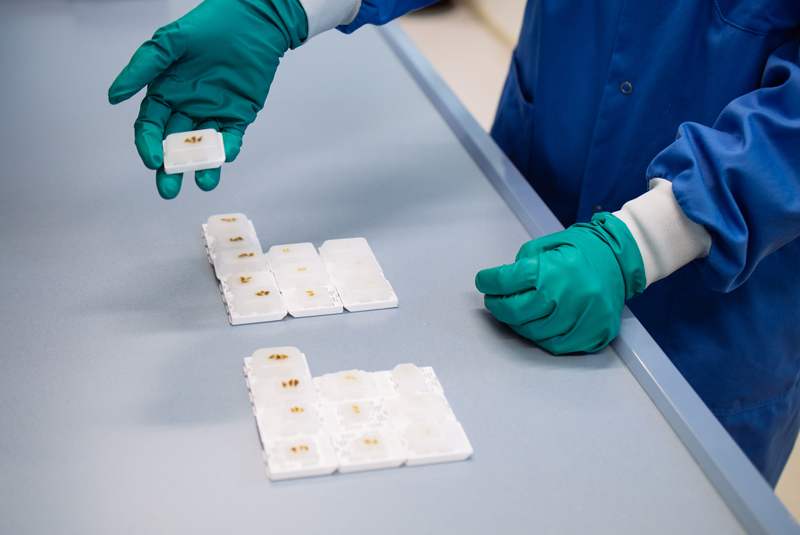
Cancer research relies on a deep understanding of the genetic and molecular structures of tumors. With advanced technologies, researchers continue to uncover new insights that pave the way for more effective therapies. A crucial part of this process is the proper preservation of tissue samples.
FFPE tissue has become an essential resource in cancer studies, enabling long-term sample preservation for detailed genetic analysis. By maintaining the integrity of tumor samples, such tissues play a vital role in advancing personalized treatment strategies and improving patient outcomes.
Use of FFPE Tissue
Formalin-fixed paraffin-embedded tissue preserves biological samples for long-term storage and research. The tissue is first fixed in formalin, then embedded in paraffin wax, which helps retain its cellular structure. This preservation technique allows researchers to examine tissue samples years after they have been collected, making Formalin-fixed paraffin-embedded tissue an essential resource in cancer research. These blocks can be sliced into thin sections for detailed analysis, offering insights into genetic mutations and disease mechanisms.
Role of Formalin-fixed Paraffin-embedded Tissue in Cancer Research
By examining preserved tissue, scientists can uncover drug-resistance mutations, aiding in developing targeted treatments. This process also enables personalized treatment plans tailored to each tumor’s specific characteristics, making therapies more effective and precise. Formalin-fixed paraffin-embedded tissue is crucial in cancer research for studying tumor genetic alterations. It preserves samples for long-term analysis, allowing researchers to:
- Extract DNA, RNA, and proteins for mutation analysis
- Identify tumor biomarkers and treatment targets
- Study how tumors respond to therapies
Personalized Medicine and the Role of FFPE
Personalized medicine focuses on tailoring treatments to an individual’s genetic makeup, increasing the chances of treatment success. Formalin-fixed paraffin-embedded tissue plays a vital role in this process by providing essential biological samples for analysis. By studying FFPE blocks, doctors and researchers can understand the specific genetic mutations in a tumor and choose the best treatment option based on that information.
Through formalin-preserved tissue analysis, researchers can develop targeted therapies focusing on specific mutations or tumor types. This method holds great promise for cancers resistant to standard treatments, allowing for the creation of more effective and individualized therapies. Personalized medicine has revolutionized cancer treatment, and Formalin-fixed paraffin-embedded tissue is crucial in this advancement.
The Growing Significance in Cancer Research
Formalin-fixed paraffin-embedded tissue remains a central resource in cancer research. Its ability to preserve biological samples over time provides researchers with a critical tool for understanding the molecular dynamics of cancer. As personalized medicine evolves, Formalin-fixed paraffin-embedded tissue will play a vital role in discovering new therapies and developing treatments tailored to each patient’s unique genetic profile. Technological advancements and analytical methods will continue to unlock new possibilities for cancer treatment, with Formalin-fixed paraffin-embedded tissue at the heart of these efforts.
Future Prospects in Cancer Research
The future of FFPE tissue in cancer research looks promising, with advancements in molecular analysis enabling deeper insights into tumor biology. Emerging techniques, such as AI-driven pathology and improved DNA/RNA extraction methods, are enhancing the use of archived samples for precision medicine. As technology evolves, these tissues will continue to play a crucial role in biomarker discovery, personalized treatments, and retrospective studies in oncology.
FFPE tissue plays an integral role in cancer research and personalized medicine, allowing researchers to study cancer at a molecular level. These preserved samples provide invaluable insights into the genetic mutations that drive tumor growth, making them essential for advancing cancer treatment. As technologies continue to improve, the importance of such tissue blocks will only grow, revolutionizing how cancer is understood and treated.

